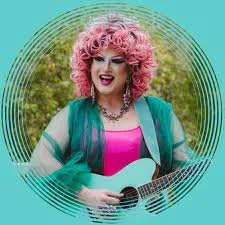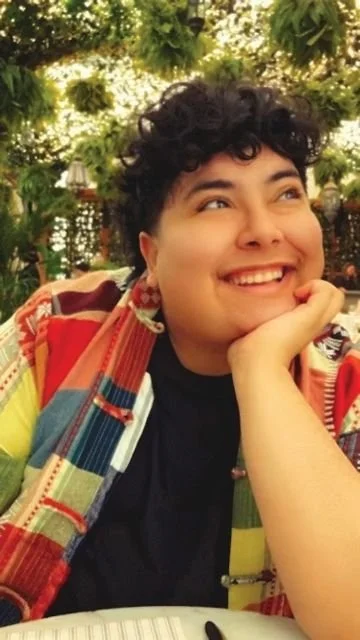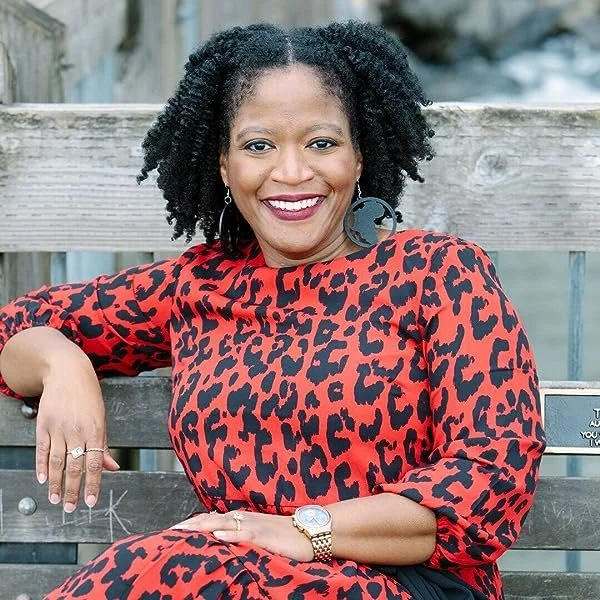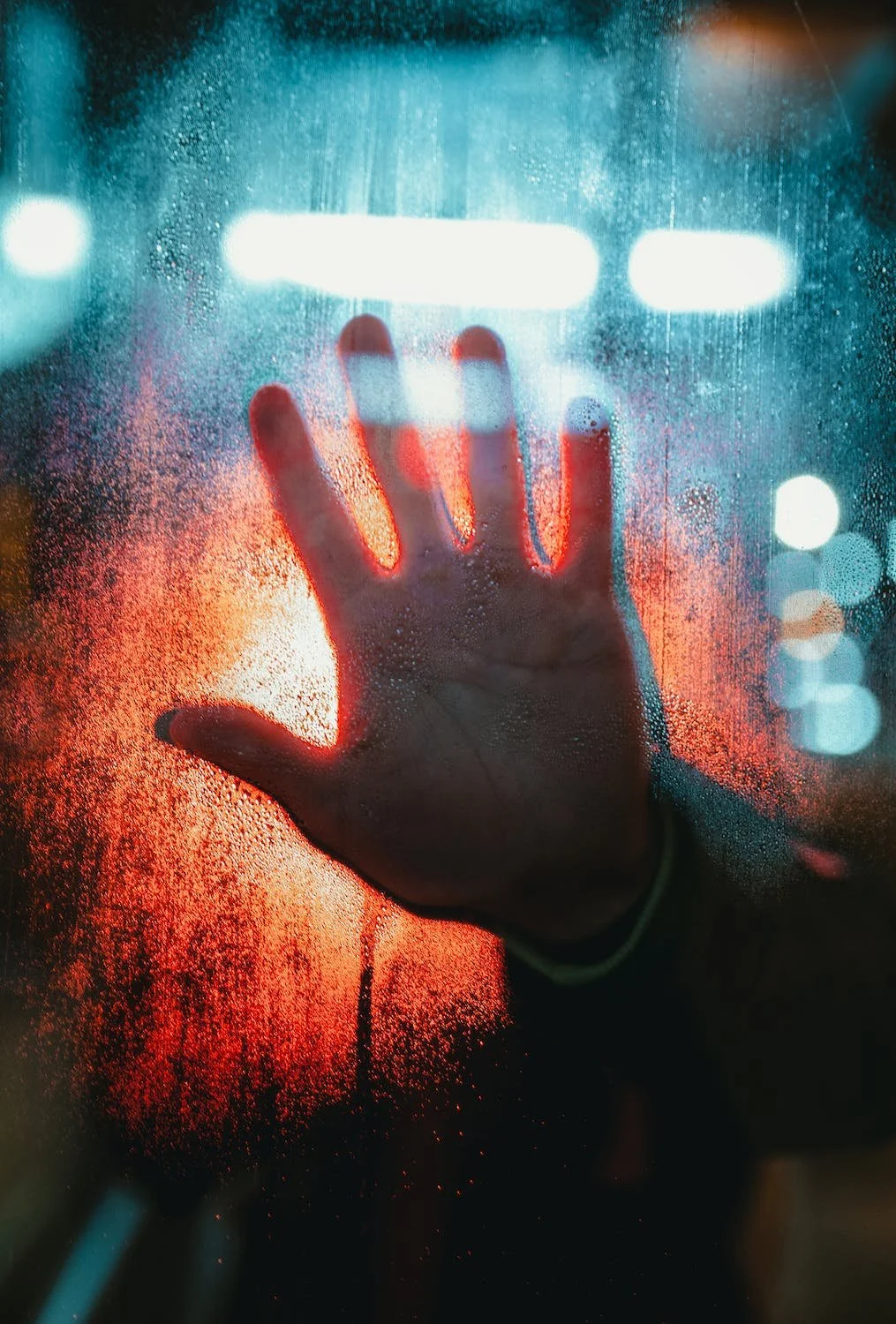Ep. 202: Get Thee to a Drag Show w/ Artist Flamy Grant
Note to listeners:
This is the second episode in a series! We were inspired by our conversation with Margot Douaihy in episode 199 to dig deeper into the ways in which the current political climate is threatening the safety and livelihoods of creatives and what we can do to not only protect artists of all kinds by supporting their work but also stand on business and take actionable steps to counter the attacks on music, books, film, television, theater, art, and live entertainment, including drag shows, which have received outsized attention in terms of censorship and, in some cases, criminalization.
EQ: How can creatives and their audiences work together to uplift and empower artistic expression in an increasingly fraught and dangerous political environment and in what ways does the art of drag support that goal?
In this episode, we sit down with Flamy Grant to explore the journey from hometown roots to the present and how place shapes artistry. Our conversation traverses everything from the story behind their drag persona, what it means to find your authentic self, and the joys & challenges of making music that disrupts and empowers. We discuss faith, evolving beliefs, and the surprising space churches have held in their career. From “slaying shame” to creating safe spaces at shows, we explore what it means to live joyfully in resistance, the role of artists in today’s political landscape, and how fans can support creatives in these wild times.
References in the episode:
Heathen Podcast (more backstory)
Mariam T @themariamt
Nadya Symone @nadya_symone
Crys Matthews @crysmatthews
Girlboy @girlboyofficial (also searchable on Spotify or Apple Music)
Do Your Fudging Homework:
Annie: Flamy is going on tour! Please consider attending a show - if you’re in the Pacific Northwest, you’ll have the opportunity to see her in Bend, Eugene, or Portland, Oregon, or Seattle in April. You should also check out her album, Church, which is available everywhere you enjoy music. Please also support your local drag community!
Hope: Ditto!
Flamy: Go to a drag show!
Ep. 190: Intersectional Story-Telling & Why Anger is Healthy with Author Sonora Reyes
EQ: How do stories that center queer and Latinx identities challenge mainstream narratives in literature, and what role do they play in fostering greater understanding and representation across both young adult and adult genres?
In this episode of IWL, we are joined by author Sonora Reyes. Sonora is most known for their hit YA novels The Lesbiana's Guide to Catholic School and The Luis Ortega Survival Club. We get personal with Sonora about how their unique identities influence their stories and the importance of staying authentic when representing complex, intersectional characters.
We also talk about how queer and Latinx stories are reshaping mainstream narratives in literature—both in young adult and adult genres. Sonora shares their writing process, from balancing genres to what’s inspiring them right now, and how community plays a center role in their writing. We learn more (and geek out about) their upcoming Adult Romance novel The Broposal.
Do Your Fudging Homework:
Sonora: Self-Care App: Finch
Hope/Annie: Please support Sonora’s work by purchasing and sharing their books (support your local bookstores!)
Ep. 177: Raising Little Justice Leaders One Step At A Time
In this episode, we are joined by Dr. Shelby Kretz, founder Little Justice Leaders, a platform dedicated to teaching elementary-aged children about social justice in an empowering and age-appropriate way. This organization stands as a beacon of empowerment and education. Through their subscription boxes and resources, Little Justice Leaders tackles complex issues with a sensitivity that is both inclusive and intentional. By emphasizing intersectionality and diversity, they not only educate but also inspire young activists. Furthermore, their collaboration with like-minded organizations and individuals amplifies their impact, showcasing the power of collective action in the fight for social justice. This episode serves as a reminder of the importance of nurturing activism from a young age and the role each of us can play in creating a more just and equitable world.
Do Your Fudging Homework:
Shelby: Check out our Instagram & email list; Learning For Justice; Find 5 justice leaders on social media.
Hope: Check out the Little Justice Leaders Website!
Ep. 171: Is the Enneagram a Tool for Good or for Evil?!
EQ: How can understanding the cultural complexities of the Enneagram serve as a valuable lens to navigate race, class, and gender; offering insights into individual perspectives and fostering deeper understanding of societal challenges and opportunities?
In this episode we are joined by law-student and enneagram expert, Dayo Ajanuka, aka The Black Enneagram “Where the Enneagram Meets Black Culture”. She walks us through the various Enneagram types, why this is such a great tool for communication and behavior analysis, and how it might be weaponized in the workplace.
Instagram: @theblackenneagram website here
Email: theblackenneagram@gmail.com
Additional Shouts:
Enneagram & Dating @enneagramfortheculture
Do Your Fudging Homework:
Hope: Go take an enneagram test! Follow Dayo @the blackennegram
Megan: Don’t be in a silo
Dayo: read about it don’t just do an online test
Ep. 170: Ep. 170: Fostering Sisterhood Cross Culturally w/ Kimberlee Yolanda Williams
EQ: How can white women and women of color actively work towards a sisterhood that furthers a more inclusive and equitable society?
In this episode of IWL, Kimberlee Yolanda Williams, co-founder Engaging Across Differences, unpacks her recent book "Dear White Women, Please Come Home: hand me your bias and I’ll show you are connection”. The book explores the concept of being seen and centered, the idealization of sisterhood, microaggressions, and the search for genuine connections. Looking ahead, Kimberlee shares her hopes for changes in conversations around race, sisterhood, and equity. She envisions positive change and recommends resources for deeper exploration of the topics. The discussion wraps up with a mention of Kimberlee's new book project and information about Engaging Across Differences' offerings.
Related Sources:
Kimberlee’s Instagram Page
Do Your Fudging Homework:
Hope: In the new year, recommit to learning and unlearning…to being part of the greater sisterhood.
Kimberlee: Look out for those moments happening around you and develop a toolkit for what to say–to interrupt the moment that is happening in front of you. Become part of my second book project! Send a message to women of color.
Ep. 150: Fake It Until You Make it & Other Imposter Struggles
EQ: How does the intersection of different identities and societal expectations contribute to the development and experience of imposter syndrome?
Guests:
Crissy Calera, educator and former guest on Episode 98 our #readlessbasic book club episode on Caste,
A new fresh face is the talented, provocative Mr. Israel Calera aka. Izy.
Today’s episode is brought to us by the New Yorker article Why Everyone Feels Like They’re Faking It. We define the idea of imposter syndrome, including it’s perhaps surprising origins. We explore the role of upbringing and family in developing our sense of acceptance, belonging, and search for community. As always, we consider the roles of gender dynamics, racial implications and socialization.
Do Your Fudging Homework:
Hope: Read “Stop Telling Women They Have Imposter Syndrome”; Dunning-Kruger Effect
Megan: reflect on your spaces–where you feel is your most authentic self? Then consider places you have power to create/replicate this feeling for others
Izy: Looking for areas where you can relieve someone from feeling like an imposter; encourage someone else by being vulnerable
Doug: Try to put yourself in other people’s shoes & support them in their “thing”
Crissy: Spend time in building self-confidence and self-affirmation; make a list of your successes and accomplishments





